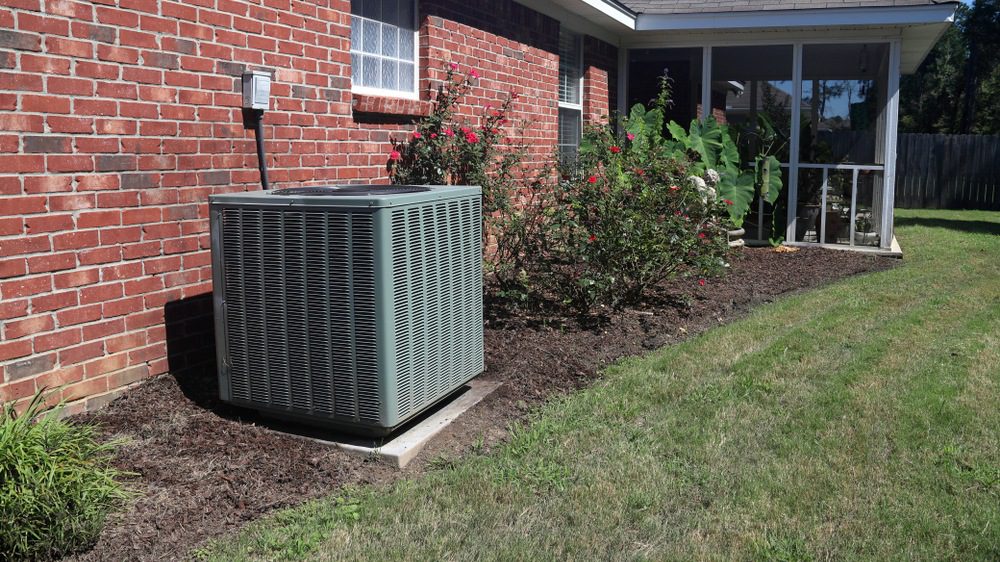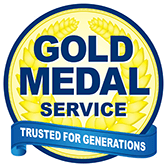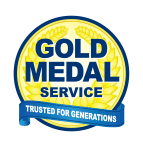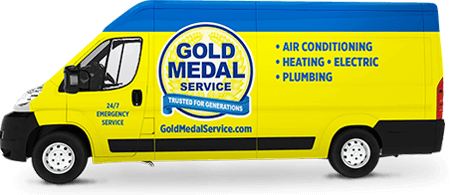
As you probably know already, your air conditioning (AC) system needs regular maintenance in order to perform efficiently and effectively. Neglecting annual HVAC maintenance appointments and monthly maintenance will result in gradually decreasing AC performance and increases in your energy bills. To help you prevent a system failure on a hot day, we have created an outline of air conditioner maintenance tips, steps, and tricks.
Table of Contents
Summer Air Conditioning Maintenance Guide
During the summer season, your air conditioner is working harder than ever, making it more important than any other time of year to consider the following maintenance tips.
1. Check and Replace Your Air Filters
The most important thing that you can do as a homeowner to make sure your HVAC system is operating properly is to make sure your air filters are not dirty and clogged. Create calendar and phone reminders to check your air filters every 30 days. In the summer, they should be replaced every 30-90 days, depending on the type of filter you have.
Never wait more than 90 days to make an air filter replacement. A dirty air filter will reduce airflow to your system, which can result in a variety of problems including frozen evaporator coils, dirty air ducts, clogged condensate drain lines, insufficient cooling, and higher energy bills.
Where Can I Find My Air Filter?
For most central air conditioning units, you can find your air filter connected to your duct system. If you have an air cleaner, such as UV germicidal irradiation, the filter is very close by. Other possible locations for your air filter include:
- At the ceiling or floor return air grille for HVAC systems that use centralized air returns rather than room air-return ducts
- Inside the air handler (in your attic or basement). There should be visible slot at the top or bottom of the unit (usually the bottom) Look for where the return air ducts connect to the blower fan and the removable cover should be nearby
Watch this Video to Learn How to Change Your Central HVAC Filter:
Watch this Video to Learn How to Clean Your Central HVAC Filter:
In order to clean your window AC unit (almost all of them contain a reusable filter), follow the directions below:
- Unplug the unit
- Remove the front cover (may require unscrewing some screws)
- Once removed, you should be able to see the filter. Remove it (again, you may need a screwdriver)
- Instead of replacing the filter, clean it (make sure it is a reusable filter)
- To clean your air filter, take it outside and shake out any large pieces of dust and debris. Next, take your garden hose and rinse it thoroughly with soap and water
- Only after the air filter completely dries can you put it back into place
- After reinstalling the filter, screw the cover back on and plug in your unit
How to Tell if Your Filter Needs Cleaning or Replacing:
Every 30 days, check your air filter for dirt and debris. You can tell if it needs to be cleaned or replaced by removing the air filter and holding it up to the light. If you can’t see any light pass through the filter, that means it is clogged and needs to be replaced. If light can pass through the filter, check your filter again in 15 days.
Simply replacing your air filter when it’s due can end up saving you up to 15% off of your cooling expenses. Homes with large households, pets, or excessive dust and debris may require more frequent air filter replacements.
2. Keep Your Evaporator Coils Clean
Two coil systems are used to help cool your home: evaporator coils and condenser coils. To ensure cold air is distributed correctly throughout your house, your air conditioning (AC) maintenance plan will need to include removing dirt and debris from your evaporator and condenser coils. An easy way to keep your coils clean for a longer period of time is to frequently replace the air filters in your HVAC system.
What Are Evaporator Coils?
Evaporator coils are located inside the indoor air handler (in your basement, supply closet, or attic). When they get dirty, condensation drips down from the coils, carrying with it any dust or dirt from the coils.
This dirty water ends up in your drain pan and eventually into your condensate drain line. When the evaporator coils are dirty, there is a much higher risk of your condensate drain line becoming clogged. Clogged condensate drain lines can cause leaks in your home, leading to costly water damage.
Why Is It Important to Clean Your Evaporator Coils?
Evaporator coils need to remain clean to absorb heat. If there is a layer of dust and debris, it won’t be able to absorb heat, leading to the common occurrence of frozen evaporator coils. Over months and years, your evaporator coils can become quite dirty. Make sure evaporator coil cleanings are included in your yearly air conditioning maintenance appointment.
Tips & Insights: Why Is My Air Conditioner Making Strange Sounds?
3. Inspect Your Condenser Coils
The other coil system at work for your HVAC system is located in your outdoor condenser unit. Condenser coils can get dirty and clogged from grass clippings, twigs, dirt, and other debris. In order to keep your HVAC system operating efficiently, you will want to periodically inspect your outdoor unit and clean it every 1-2 months.
In order to keep your outdoor condenser unit clean, there are a few things you can do (or not do):
- Keep plants and foliage away from the unit. Although it is tempting to hide your unsightly HVAC unit, it needs a minimum clearance of 2 feet in order to receive the proper airflow for your cooling system to work
- Consider xeriscaping around your outdoor HVAC unit to reduce the amount of grass and other organic material from clogging up your system
- Remove plants, leaves, twigs, and other debris from your unit every month. After a heavy storm, go outside to inspect your unit
- Never stack anything on top of your outdoor HVAC unit
Call a professional to receive condenser coil cleaning and other air conditioning maintenance essentials for your home. You should have professional maintenance done on your air conditioner every year to lower your utility bills, increase the lifespan of your HVAC unit, and maintain your manufacturer warranties.
Although your HVAC contractor should clean your outdoor unit during every maintenance inspection, it really should get more cleanings than just one a year.
Watch This Video to Learn How to Clean Your Outdoor Condensing Unit:
4. Check the Sealing For Your Window Air Conditioner
Check your window air conditioning units for proper sealing around the window. If the seal is broken or compromised, you will want to make sure the unit and the window frame are properly sealed. Choosing to skip this air conditioning (AC) maintenance tip can cause damage to your window unit and cause cool air to escape.
You will also want to inspect all of your doors and windows for proper air sealing. Read this home air sealing guide to learn how to properly air seal your home. Improving the insulation around your home can save you hundreds of dollars every year.
Cheap materials, such as caulk and masting tape will pay for themselves in the very first month. If you are having difficulty locating your air leaks or just want someone to do it for you, a licensed HVAC technician can perform a blower door test and use other equipment to find all the leaks in your home along with solutions for patching them up.

Air Conditioning Tune-Up and Maintenance Services
When your air conditioner needs more than regular maintenance, hire a professional technician on our team. Our staff offers comprehensive air conditioning and HVAC repair services in Paterson, NJ and other areas. We also specialize in in zoned heating and air conditioning and have the tools necessary to repair all makes and models of HVAC systems, so give us a call by phone at (732) 638-4317 to receive support.
Our team also offers other types of HVAC solutions such as air conditioning installation, furnace repair, boiler maintenance, and heat pump system replacement. We provide 24-hour service and customer support so if your air conditioning fails in the blistering heat, we will there for you. Contact Gold Medal Service by filling out our online request form to receive assistance.
Tips & Insights: 5 Types of Furnace Problems & Ways to Fix


